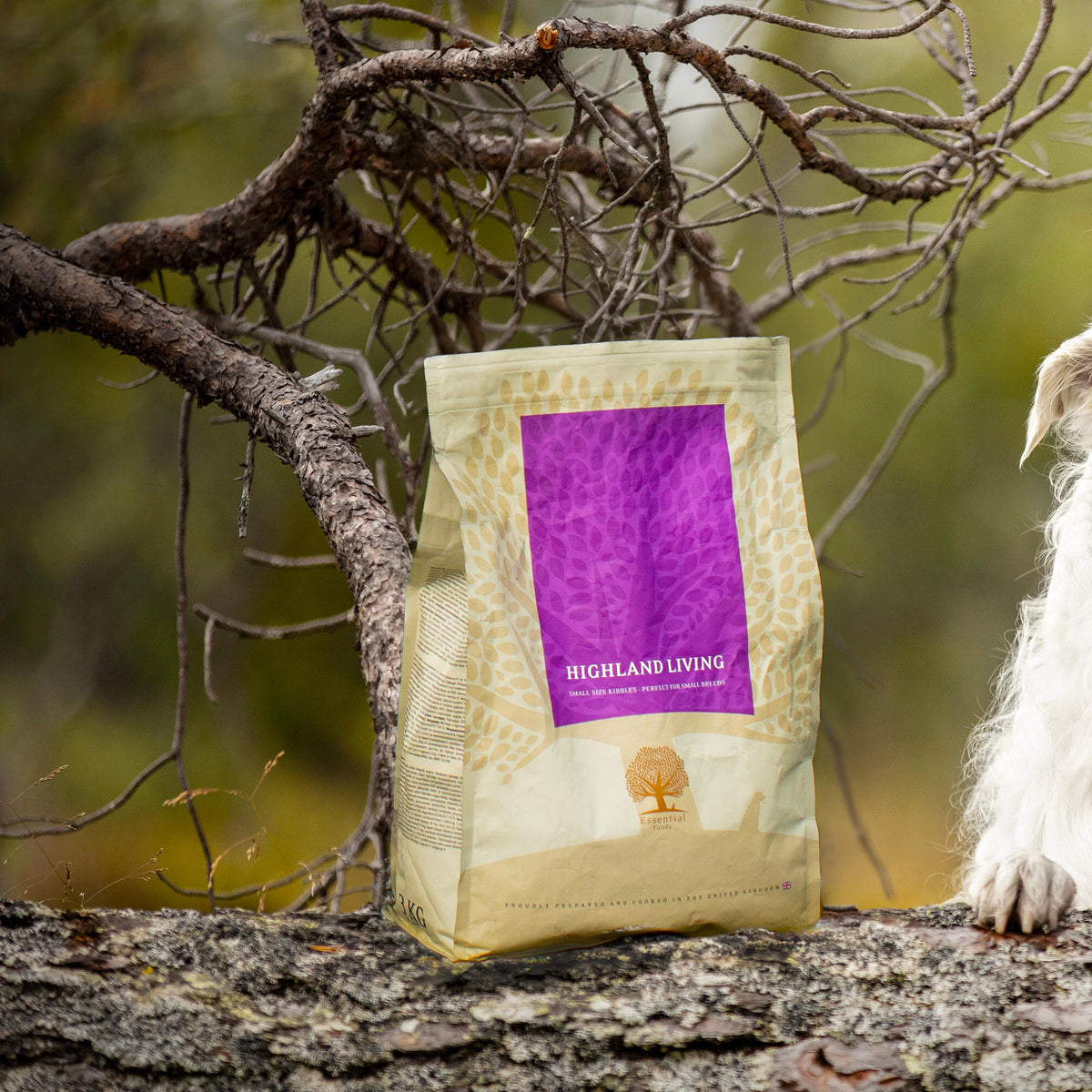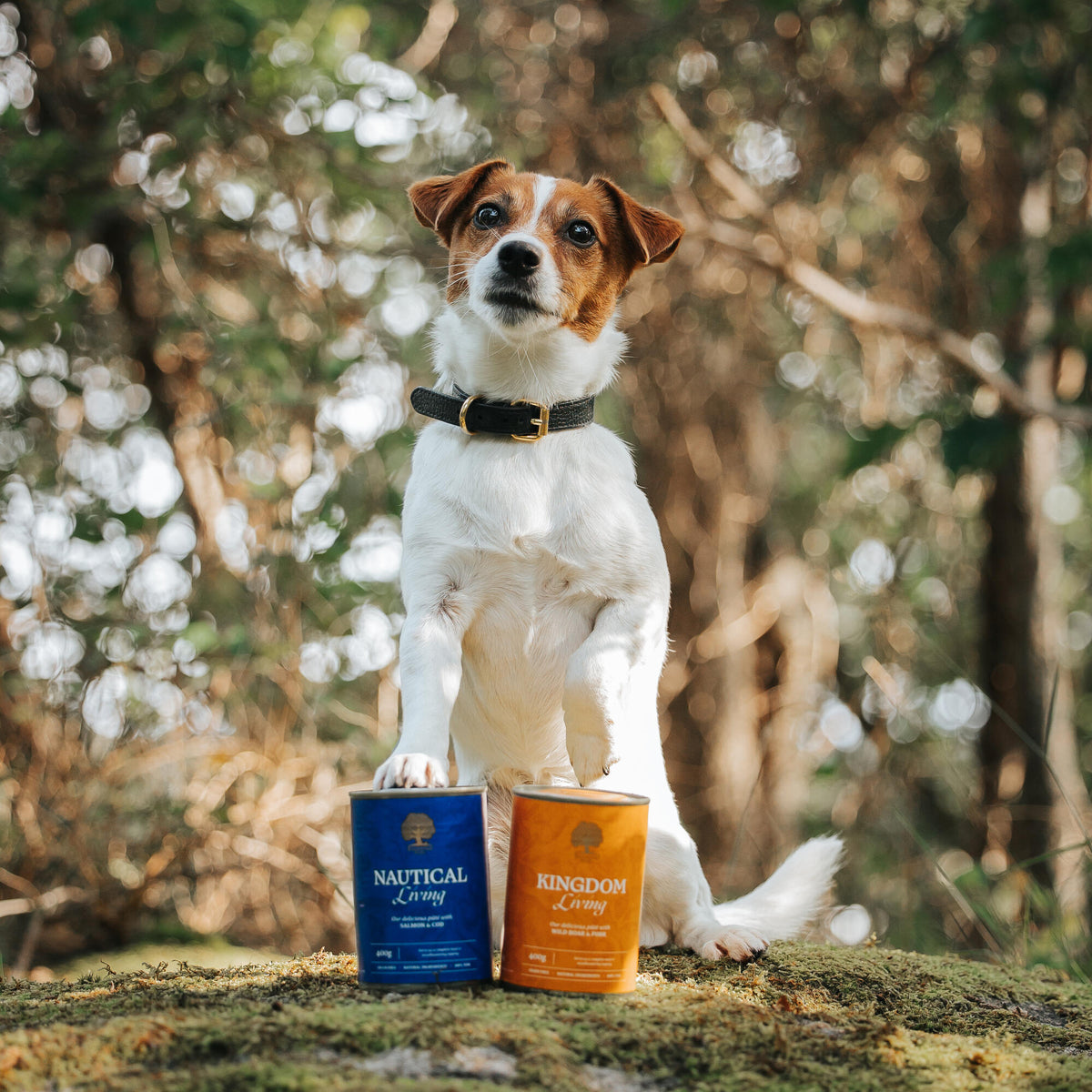Your Cart is Empty

As pet owners, we often find ourselves wondering about the dietary choices that are safe and beneficial for our dogs. One common query that arises is whether dogs can safely consume bread. In this comprehensive guide, we'll delve into the question of whether bread is suitable for dogs and explore the broader landscape of canine nutrition. By the end, you'll have a clear understanding of the role of grain-free dog food, natural dog food, and puppy food in your dog's diet, along with why essential dog food emerges as the top choice for optimal canine health.
Before delving into whether dogs can eat bread, it's essential to understand what constitutes this common human food. Bread typically contains ingredients such as flour, yeast, salt, and sugar, which may not align with a dog's nutritional needs. While small amounts of plain bread may not be harmful to some dogs, it's crucial to consider the potential risks and benefits before offering it to your pet.
While dogs can technically consume bread, it's not an ideal dietary choice for several reasons. Bread offers little nutritional value for dogs and may contribute to weight gain and digestive issues due to its high carbohydrate content. Additionally, certain ingredients commonly found in bread, such as raisins, garlic, and onions, can be toxic to dogs and should be avoided at all costs. Therefore, while a small piece of plain bread may not cause harm, it's best to err on the side of caution and prioritize more nutritionally balanced options for your canine companion.
Grain-free dog foodhas gained popularity in recent years, with many pet owners opting for this option in pursuit of a more natural diet for their dogs. By eliminating grains like wheat, corn, and soy, grain-free dog food aims to mimic a dog's ancestral diet, which primarily consisted of meat and protein. This dietary approach can be beneficial for some dogs, particularly those with grain allergies or sensitivities.
Natural dog food emphasizes the use of whole, minimally processed ingredients, free from artificial additives, preservatives, and fillers. Unlike conventional commercial diets, which may contain synthetic vitamins and minerals, natural dog food derives its nutrients from real, recognizable sources like meat, fruits, and vegetables. By prioritizing quality over quantity, natural dog food provides dogs with the essential nutrients they need to thrive. Additionally, natural formulations often feature limited ingredient lists, making them ideal for dogs with food sensitivities or allergies.
Puppy food is specifically formulated to meet the unique nutritional needs of growing puppies, supporting healthy development and growth. Unlike adult dog food, which may not provide adequate nutrients for puppies, puppy formulations are calibrated to support optimal growth and development. These foods typically contain higher levels of protein, fat, and calories to fuel a puppy's rapid growth and energy needs. Additionally, puppy food may include essential nutrients like DHA, which supports brain development and cognitive function.
In conclusion, while dogs can technically eat bread, it's not a recommended dietary choice due to its limited nutritional value and potential risks. Instead, pet owners should prioritize high-quality options like grain-free dog food, natural dog food, and puppy food, which offer essential nutrients and support optimal canine health. By choosing essential dog food, enriched with high protein levels, balanced omega fatty acids, and natural ingredients, you can ensure that your dog receives the nutrition they need to thrive at every stage of life.
While small amounts of plain bread may not cause harm to some dogs, it's not an ideal dietary choice due to its limited nutritional value and potential risks.
Feeding bread to dogs can contribute to weight gain, digestive issues, and potential toxicity from harmful ingredients like raisins, garlic, and onions.
Grain-free dog food may be beneficial for dogs with grain allergies or sensitivities, as it eliminates common allergens like wheat, corn, and soy.
To transition your dog to a new diet, gradually mix increasing amounts of the new food with decreasing amounts of the old food over a period of 7-10 days, monitoring for any signs of digestive upset.
Yes, natural dog food is suitable for all dogs, providing essential nutrients and supporting optimal health and wellbeing.


